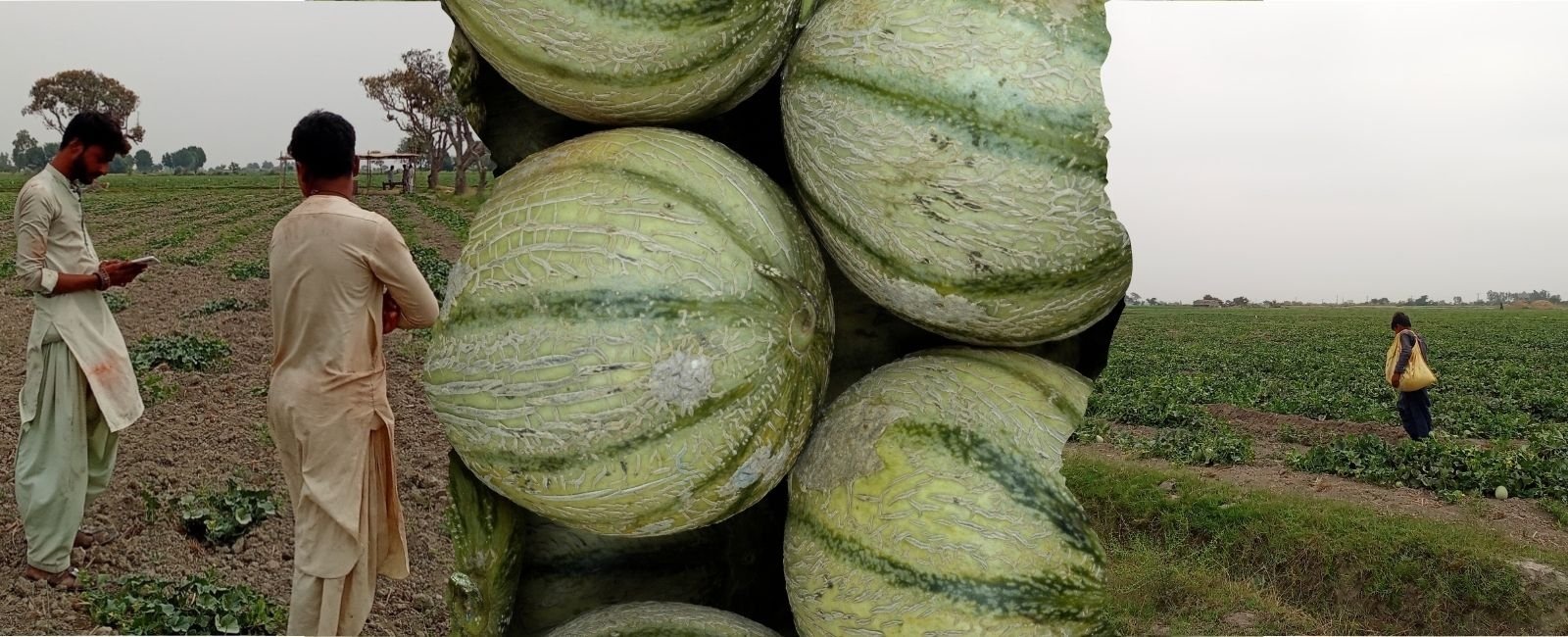Caught in a case of vanishing muskmelons, farmers face a sour plot
Plight of muskmelon growers in Sindh’s coastal belt reflects broader challenges faced by small-scale farmers across Pakistan

“We worked day and night, hoping for a good harvest, but the land didn’t favour us this time," says Kirshin Bagri, frustration evident in his voice as he sits under the shade of his mud-plastered hut in the Sujawal district of Sindh.
Sujawal is bordered in the northwest by the Indus River, which separates it from Thatta District.
The muskmelon grower, like many others in Sindh’s coastal belt, is grappling with a season of disappointment—low yields, rising costs, and dwindling profits. The once-thriving muskmelon trade, nurtured by generations of the Bagri community, is now at the mercy of fickle weather, shortages of irrigation water, and middle-men-infested exploitative markets.
Besides several others, muskmelon is one of the major fruits harvested from February to April in the coastal areas of Sindh.
Local growers hire a workforce to make the most of this seasonal fruit, but over the past couple of years, the yield has been disappointingly low.
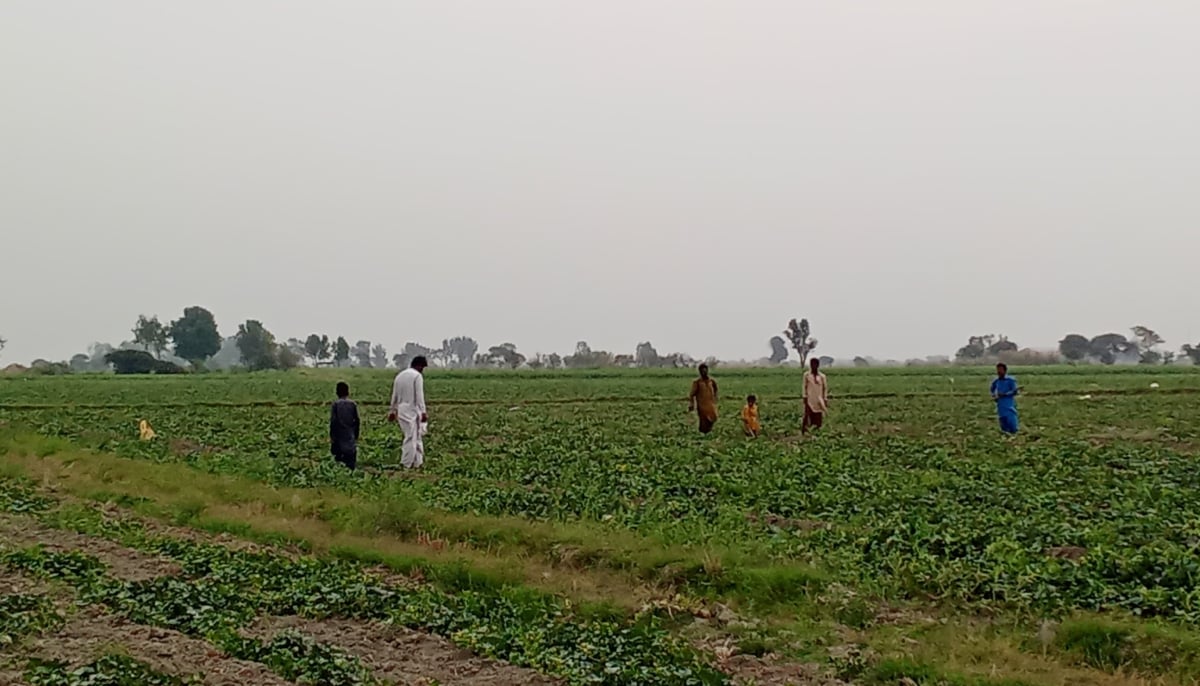
Kirshin, a native of the Tando Allahyar district of Sindh, settled down 11 kilometres from Jati town in the Sujawal district around six months ago, in a mud-plastered hut along farmland that he had leased from a local grower for the cultivation of muskmelons.
His two sons, a brother, and a nephew also support him in taking care of the farmland he migrated to — plucking, and selling muskmelons.
Kirshin, clearly upset, responded with ill humour when asked about the situation. He sulked over the disappointingly low rates of muskmelons in markets of megacities like Karachi, Hyderabad, and Umerkot — a problem compounded by falling yields, primarily due to the uncertain weather in Sindh’s coastal areas.
He wasn’t ready to share his concerns, but after being convinced by his brother, Balam Bagri, he narrated the challenges faced by muskmelon growers in the Larr region of Sindh.
The local Bagri community is known for its expertise in cultivating muskmelons and watermelons during this part of the year. This time, however, they have been at the receiving end of multiple challenges, ranging from weather fluctuations and water dearth, to stubborn pest infestations and plummeting rates in big markets.
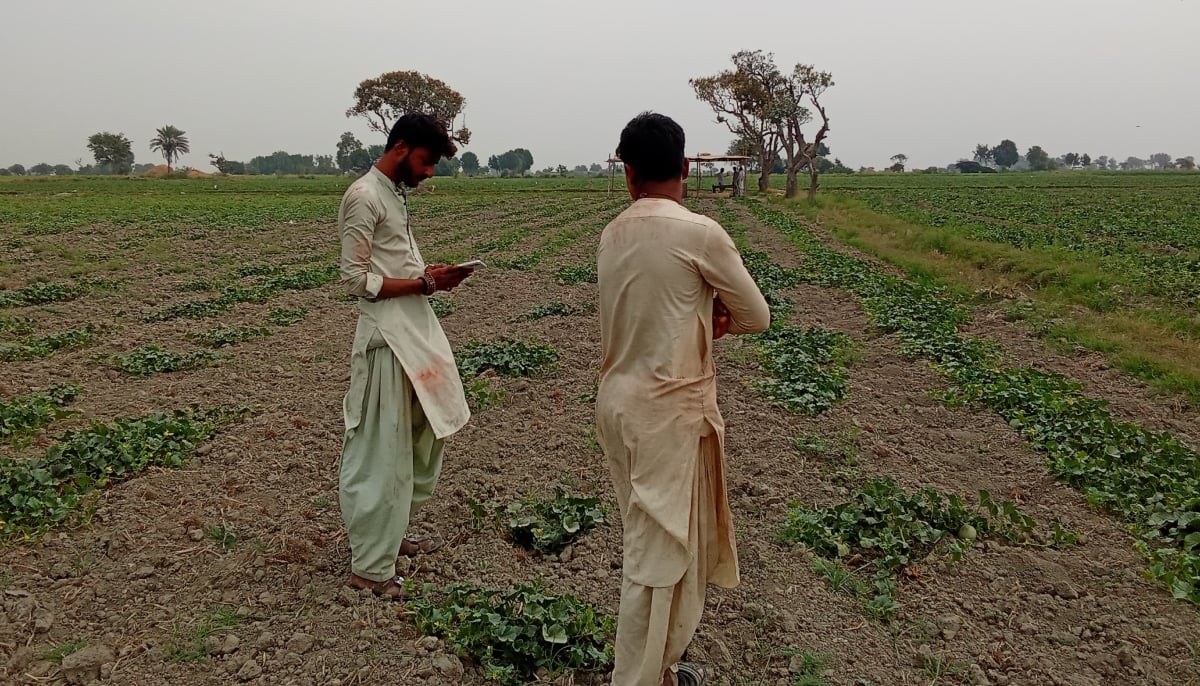
Rajesh, 17, who assisted his uncle Kirshin in cultivating and protecting muskmelons, said that complete nurturing of muskmelons required four to six months, but this time, the results were not poor. Changing weather patterns, mainly surging temperatures, particularly during mid-February — when it generally remains breezy — adversely impact the size of muskmelons.
“Our cousin, Parmesh, who worked as a farmer here around five years ago, told us that the lands of coastal areas are suitable for melon cultivation,” said Balam, adding that, they took the plunge, leased four acres of land, and cultivated muskmelons. Besides the male members of Kirshin’s family, his wife, Shrimati Geeta, and daughter, Sanjana, also lend a hand in tilling the land.
Earlier, they had to face the challenge of water scarcity, which not only delayed the sowing of muskmelons but also prevented the land from getting the moisture required for proper growth. Kirshin, who red-faced while sharing the hectic efforts he had made in growing muskmelons, said that fruit vendors at local markets were not paying them a fair price.
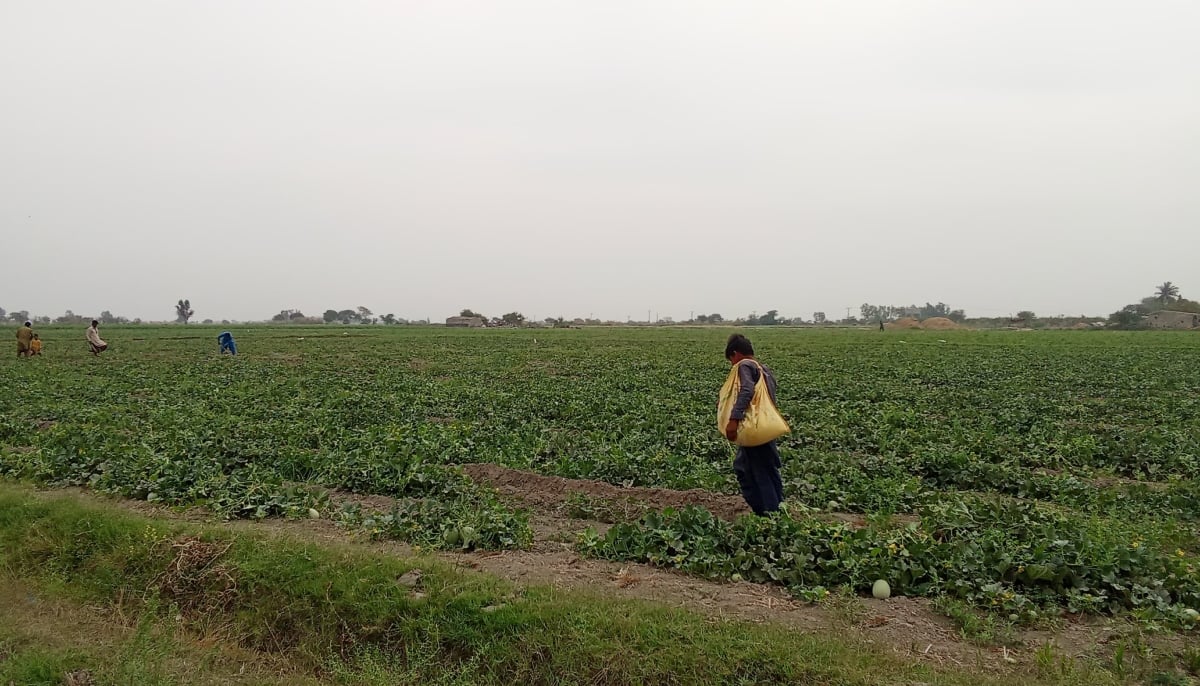
“Dismayed with the attitude of local vendors, we had to take our fruit to the markets of big cities—Hyderabad, Karachi, and Umerkot — but even there, luck did not favour us,” said Chandar Bagri, a member of Kirshin’s family. He added that in local markets, they were selling muskmelons for Rs1,200 per maund, while in big city markets, they fetched Rs1,800 per maund.
“High transport charges broke our back,” Kirshin interrupted while Chandar talked about market rates. He further said that he recently made around Rs25,000, but after deducting transport charges and other expenses, he could only save Rs8,000.
Notably, the Bagri community has earned a reputation for its exceptional expertise in cultivating and nurturing muskmelons, peas, watermelons, and other seasonal crops in the Larr region of Sindh, which encompasses Tando Muhammad Khan, Sujawal, Thatta, and Badin districts. Local landlords often employ members of the Bagri community to leverage their expertise and maximise crop yields. Furthermore, instead of sending their children for formal education, they train them in agriculture from an early age.
Rajesh, one of the family members, was been tasked with finding modern ways to cultivate and protect muskmelons, but none of his efforts bore any fruit, as modern techniques were beyond their financial reach.
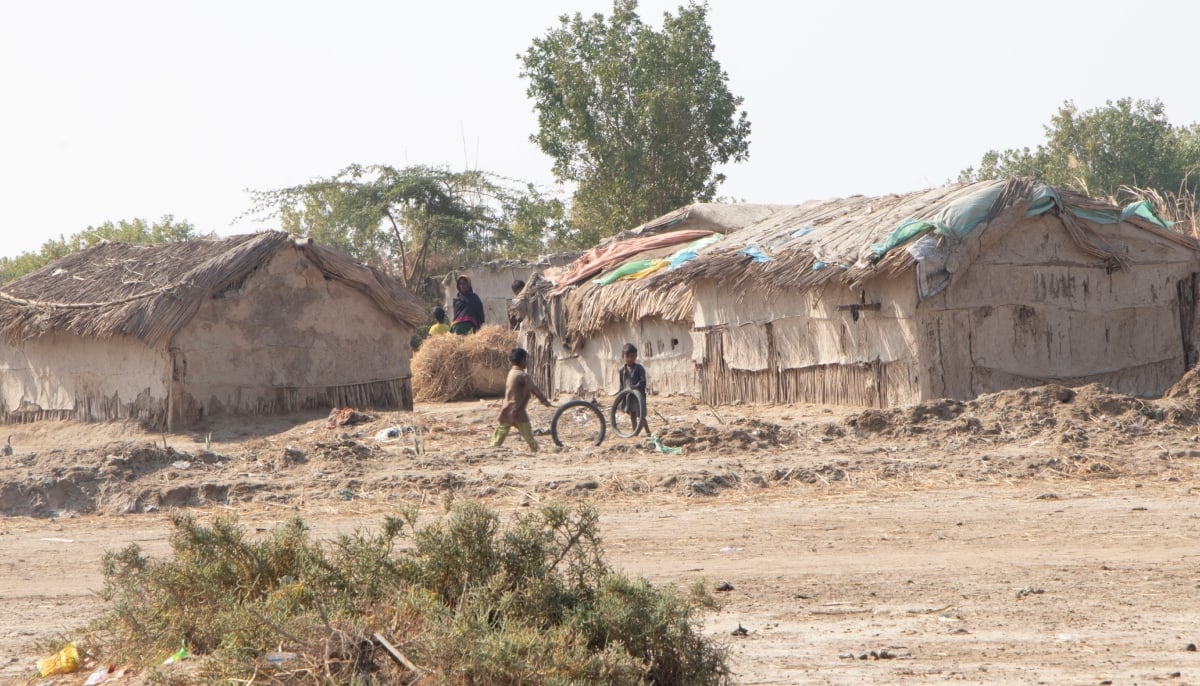
Kirshin also said that he and the landowner had agreed to share the profit from sales, but he had only incurred losses.
A noted agriculturalist, Ahsan Hyder Ali, who has served as an assistant director in the agricultural department of the district, revealed that high rates of pesticides, viral infections, and warm weather were weighing down on muskmelon yields.
“This year, the watermelon crop in coastal areas was largely affected due to four major problems: powdery mildew, downy mildew, whitefly, and thrips infestations, along with leaf miner and fruit fly attacks,” said Ali.
He added that powdery mildew whitens the skin of muskmelons, causing them to shrink, while whiteflies affect the stems, stunting growth. The other pests disrupt the size and shape of the fruit.
He further explained that small growers could not afford expensive pesticides, hybrid seeds, or modern cultivation techniques.
Talking about the low muskmelon production, he said that around 10 years ago, an acre of land along the coastline could yield around six maunds, but that has now drastically reduced to three due to the adverse effects of climate change.
Muhammad Bux, a local fruit vendor, complained that the sweetness of locally cultivated muskmelons had also been affected due to irregular weather patterns and disease.
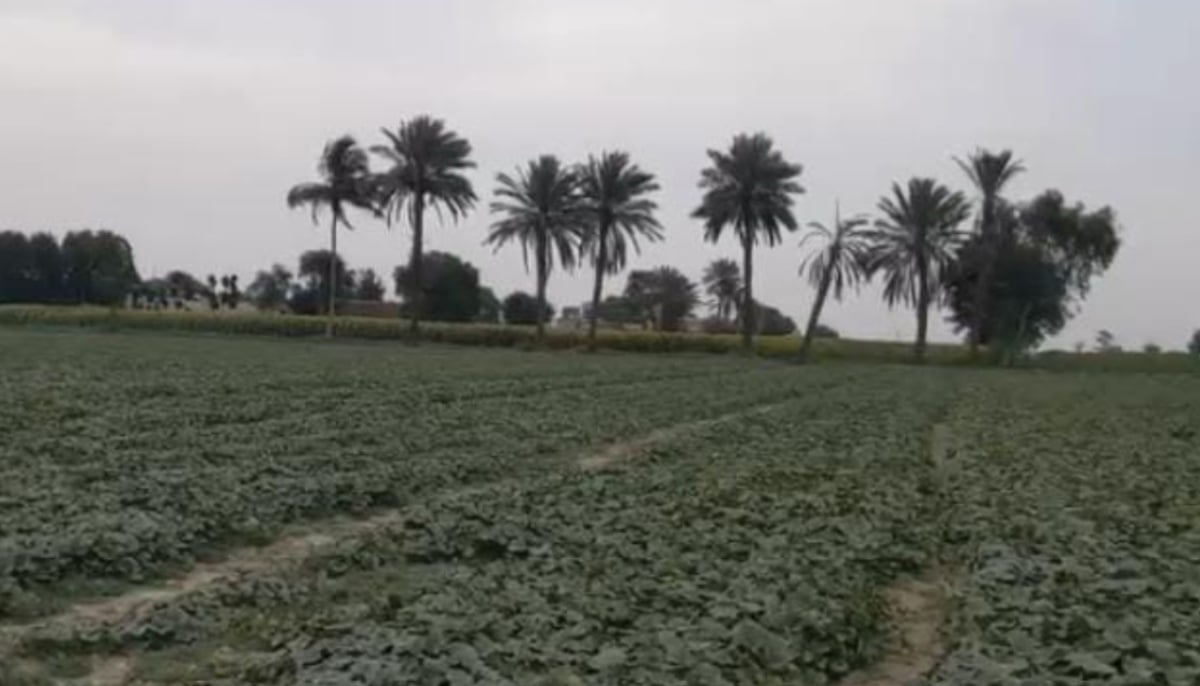
Obhaiyo Khan Khushk, a former chief engineer of the Sindh Irrigation Department, and a noted water expert, disclosed that the coastal areas of Sindh had not been receiving their due share of water, which had severely affected the cultivation of both water-intensive and high water-requirement crops. “Growers are unaware of modern agricultural techniques,” Khushk said and urged the agricultural and irrigation ministries to play their part in educating them.
During the discussion, Ali underscored the impact of climate change on shrinking crop yields in coastal regions and called on the Sindh government to assist small growers in improving their harvests.
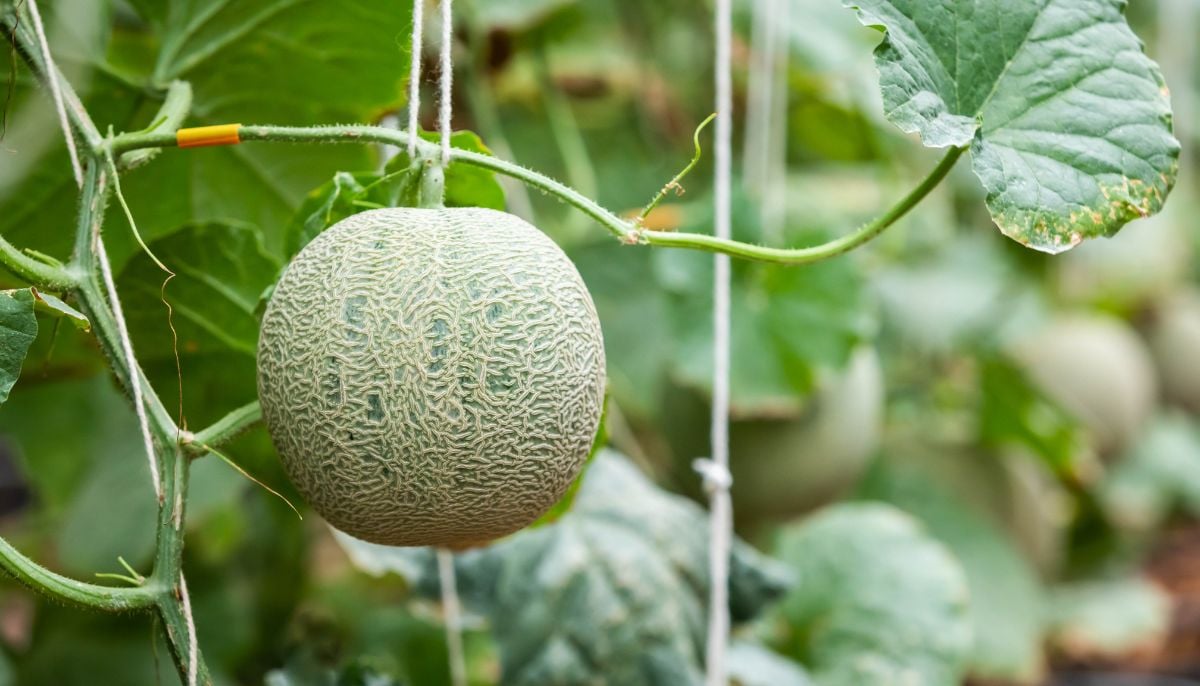
The plight of muskmelon growers in Sindh’s coastal belt reflects the broader challenges faced by small-scale farmers across Pakistan. They are water-strapped, unable to afford pesticides, and have limited or no access to modern agricultural techniques.
All these issues have collectively contributed to declining yields and financial hardships. A timely intervention by the government and agricultural experts can help the situation from deteriorating further. Before more growers are pushed into economic uncertainty, immediate steps are needed to equip farmers with the resources and knowledge necessary to sustain muskmelon cultivation in the region.
The author is a lawyer and journalist based in Sujawal. His areas of interest are cultural diversity and socio-political isuues. He posts on X @ZaibSha1
Header and thumbnail illustration by Geo.tv



